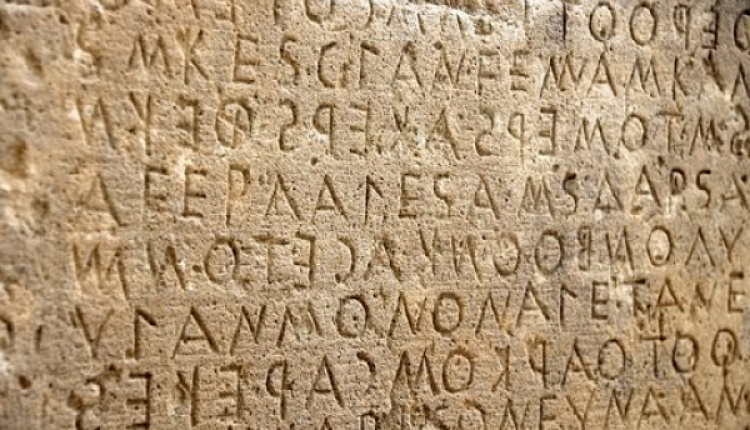English Words You Probably Didn’t Know Came From Ancient Greek
- by XpatAthens
- Tuesday, 07 June 2022

There is a popular perception that words derived from Greek are long, exotic-sounding, and mostly only used in discussions of science and philosophy. It’s true that there are a lot of Greek words that fit this description. For instance, very few people would use words like otorhinolaryngology, homoousian, ataraxia, or peripeteia in casual conversation.
There are, however, a lot of really simple Greek words that people use nearly every day. Some of these words don’t sound Greek at all because they have passed through so many languages that they no longer bear any of the distinctive sounds or spellings that we normally associate with Greek words, but they are still of Greek origin.
Here is a list of commonly-used words in English that don’t sound Greek, but are ultimately of Greek origin:
There are, however, a lot of really simple Greek words that people use nearly every day. Some of these words don’t sound Greek at all because they have passed through so many languages that they no longer bear any of the distinctive sounds or spellings that we normally associate with Greek words, but they are still of Greek origin.
Here is a list of commonly-used words in English that don’t sound Greek, but are ultimately of Greek origin:
- The word box comes from Late Latin buxis, which comes from earlier Latin pyxis, which comes from the Greek feminine noun πυξίς (pyxís), meaning “box.”
- The word church comes from the Old English word cirice, which comes from Proto-West Germanic *kirikā, which comes directly from the Greek adjective κυριακόν (kyriakón), meaning “belonging to the Lord.” This word, in turn, comes from the masculine noun κύριος (kýrios), meaning “Lord.”
- The word idea is derived from the Latin word idea, which is derived from the Greek feminine noun ἰδέα (idéa), meaning “form,” “shape,” “appearance,” “sort,” or “idea.” This word is, in turn, derived from the verb εἴδομαι (eídomai), meaning “to be seen” or “to appear.”
- The word lamp comes from Middle English lampe, which comes from Old French lampe, which comes from the Latin word lampas, which comes from the Greek feminine noun λαμπάς (lampás), meaning “torch.”
- The word machine comes from the Latin word machina, which comes from the word μαχανά (machaná), which is the Doric Greek form of the feminine noun better known by its Attic Greek form μηχανή (mēchanḗ), meaning “machine,” “contrivance,” or “device.”
- The word paper comes from Old French papier, which comes from Latin papyrus, which comes from the Greek masculine noun πάπυρος (pápyros), meaning “papyrus.”
- The word place comes from Old English plæce, which comes from Latin platea, which comes from πλατεῖα (plateîa), the singular feminine form of the Greek adjective πλατύς (platýs), meaning “flat and wide.”
- The word plate comes from Old French plate, which comes from Medieval Latin plata, which comes from Vulgar Latin *platus, which comes from the Greek adjective πλατύς (platýs), meaning “flat and wide.”
- The word problem is derived from Middle French probleme, which is derived from Latin problema, which is derived from the Greek neuter noun πρόβλημα (próblēma), meaning “hindrance,” “obstacle,” or “matter for discussion.”
- The word sock comes from the Old English word socc, which comes from the Latin word soccus, which comes from the Greek masculine noun σύκχος (sýkchos), which referred to a kind of buskin shoe worn by comic actors.

